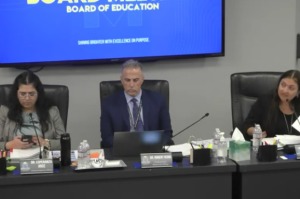Celebrity Pastors are Selling Their Pulpits for Commercial Gain

What we are seeing, now that we're all getting a glimpse into the unsavory world of celebrity pastoral publishing, is that book publishing matters to these guys more than preaching. The profitability of Scriptural teaching in 2 Timothy comes second to the profitability that can be created from flashy marketing.
The common practice of delaying preaching for the sake of publishing has a couple of disadvantages and one important advantage:
Disadvantage: It abandons the sheep
Jesus told Peter to feed his sheep. Paul told Timothy to preach the Word. Multnomah Books told Pastor Steven to do neither until bookstores started counting sales for the New York Times. (It happens so consistently that I wonder if preaching a sermon series on a new book is a contractual obligation.) For all the insistence that the blurb writers press on us that we must read these books Right Now, the authors are willing to wait for a year or so before preaching this essential wisdom to their own people.
Pastors ought to write books, but they should fulfill the role of pastor first. Shouldn't books come from things that have already been taught profitably in the church? A good shepherd does not hide useful teaching from his church until the week that the teaching becomes financially and personally profitable to him.
Disadvantage: It's ethically conflicted
Sermon series are postponed until a book's commercial release to drive sales by members of the author's congregation. Pastor-authors are earning money from the church's regular tithes and offerings, then supplementing that with the royalties that flow to them from book sales. We know that churches are careful not to overpay their pastors with tax-exempt charitable donations, so they use the profits from book sales to boost the pastor's total compensation package without drawing unnecessary scrutiny from the IRS.
Where this gets especially murky is when the churches participate in the marketing process itself, apparently spending tithe money on the books, essentially laundering charitable giving into commercial profit. The difference is that the pastor can only be paid a limited — though still very high — amount of charitable money, but an unlimited amount of commercial money. Money given to a tax-free entity is being used to purchase commercial goods from the person in charge of that charity/church. It looks and smells bad.
Advantage: It reveals priorities
Preaching on topics only when they know they'll get royalty payments does tell us what's important to these pastors and brings into question whether they are qualified for church leadership. Paul tells Titus that a ruler in the church must not be greedy for gain (Titus 1:8) and tells Timothy that he must not be a lover of money (2 Tim. 3:3). In 1 Cor. 9 and 2 Cor. 12 Paul was able to boast to the Corinthian church that he had not used them to his financial advantage.
Could Driscoll or Noble or Furtick say that, or could they pass the test for elders in Timothy and Titus?
But these preachers probably aren't going to pay much attention to those standards and Paul's example now, otherwise they wouldn't be doing what they're doing. Perhaps, though, they'll pay attention to what one of their own says about them.
Perry Noble has, before he became a best-selling author himself, spoken harshly of preachers who put the profit motive above the plain and honest teaching of God's Word. That person is "a mere preaching whore," Noble once said. "One who is paid for a service for the pleasure of another person."
A topic for his next book, perhaps?




























